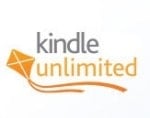Amazon is Killing it in the Subscription eBook Market


A new survey report from Peter Hildick-Smith’s Codex Group reveals that Amazon is dominating subscription ebooks to a surprising degree. Even though Amazon doesn’t have any ebooks from major publishers, the ebook giant has many more subscribers than either of its US competitors.
According to the Codex Group’s April 2015 consumer survey, 12.4% of ebook buyers also have a Kindle Unlimited subscription. In comparison, only 1.4% of respondents reported that they had a Scribd membership, and even fewer were paying for Oyster.
The report also showed that Amazon’s subscriber base grew by 10% between November 2014 and April 2015, while the customer base of its smaller competitors fell by an average of 30% over the same period.

Four out of five members of the survey group knew about Kindle Unlimited, while 24% knew of Scribd and 16% had heard about Oyster. The respondents were also more interested in signing up with Amazon than its competitors, with 4.2% of ebook buyers thinking about getting a Kindle Unlimited subscription.

Amazon’s competitors have been in this market for about twice as long as KU, offer more titles from the major publishers, and yet they can claim (at best) a subscriber base that is but a fraction of Kindle Unlimited.
While it would be wrong to call the game for Amazon, they are certainly winning this round, and that is both good and bad news for publishers.
Oyster’s and Scribd’s relatively low adoption rates should allay concerns that the subscription ebook services will cut into retail ebook sales; they just don’t have enough subscribers for that to be a problem. On the other hand, they also don’t have enough subscribers to be a major source of revenue.
And given that Kindle Unlimited is funded (for the most part) from a pool worth $9.5 million in March 2015, at present that isn’t a major source of revenue either.
As a result, the subscription ebook market is in its second year and it has so far proven to be less than the game changer some pundits had expected and some publishers had feared. Instead it is just another niche, and there is little reason to believe that will change in the near future.


Comments
Maria (BearMountainBooks) May 4, 2015 um 8:08 pm
When I did a giveaway for a scribd subscription on my blog, I spent a lot of time explaining what it was. Interest was tepid at best. (The giveaway was done in conjunction with author Margaret Lake). I like scribd and used it for a few months, but it doesn’t seem to be catching on in a huge way.
Ebook Bargains UK May 5, 2015 um 3:16 am
Given Amazon’s dominance of the US ebook market this is hardly surprising, but not very indicative.
Surveying ebook consumers and asking which operator they had heard of tells us very little. It’s a given the 65% that buy from Amazon will have heard of KU. You can’t avoid it if you shop at Amazon. Equally, unless those readers are also authors, or take a wider interest in ebooks, why would they know or care about Oyster or Scribd?
Taking those figures, if 65% of the ebook readers use Amazon and 12.4% subscribe to KU then the 1.4% subscribing to Scribd is entirely in keeping with expectations, given Apple, Nook, Kobo and Google Play mop up most of the 35% outside the Amazon zone.
On the same note, while 80% of ebook consumers may have heard of KU, if 65% of them are Zon customers anyway that means only 15% of non-Amazon users have heard of KU.
What would be far more useful to have asked is how many of the Amazon subscribers are not just regular Amazon customers who routinely spent more than ten dollars a month on ebooks so switched their purchase mode to save money.
How many of the 4.2% “thinking about” a KU subscription are regular Amazon buyers anyway? If they are not, that number is significant. If they are, it isn’t so impressive after all.
Safe to presume most of Scribd’s and Oyster’s subscribers were not Amazon customers deserting Amazon (not least because of the file format issue for those with ereaders).
Also safe to presume Scribd and Oyster borrows are not cannibalizing actual sales.
Where KU may have a real advantage is in meeting demand for shorter works as the attention-deficient, the content-snackers and the busy shift to smartphone consumption in bite-size chunks. With KU’s main content suppliers – indies – shifting heavily to shorter works to take advantage of the payout quirk that pays significantly more for a 0.99 title than a regular sale, KU has obvious appeal to snackers who can get through a lot more than ten short 0.99 items a month.
Smart Debut Author May 6, 2015 um 7:34 pm
On the same note, while 80% of ebook consumers may have heard of KU, if 65% of them are Zon customers anyway that means only 15% of non-Amazon users have heard of KU.
Um… last I checked, 15 out of 35 would be a lot higher than 15%.
By your own math, at least 37.5% of those non-Amazon users have also heard of KU.
Mary May 5, 2015 um 7:48 am
I am currently in the last few days of a free Oyster trial. I would continue on a paid basis if I could read the books on e-ink Kindle or Kobo. But this option is not available and it is difficult for me to do long-form reading on a backlit device as you must with Oyster. Likely there are more Kindle Unlimited subscriptions because the KU books can be read on any device, e-ink or backlit.
Vonda Z May 5, 2015 um 11:31 am
This is what I was thinking as well. It is not just about exposure to the service or available content, but it is largely about hardware. I am not really interested in subscription services, but if I were, it had better work on my kindle e-ink device and it better be easy to access that way. You know Amazon will make it seamless. The others, even if they make it work on Kindle, you would have to jump through more hoops to get there. So even though major publishers are going through the competitor services and the selection may be better in that respect, I just don’t want to read their stuff that way.
Maria (BearMountainBooks) May 5, 2015 um 11:42 am
@ Vonda — yup. It’s not seamless on SCRIBD and doesn’t work on an eink at all. The big win for Amazon to get people reading ebooks was the one-click, no side-loading, ease of use, great on the eyes relatively inexpensive. SCRIBD doesn’t offer that unless you want to read on a tablet or laptop and it wasn’t very convenient for me to use. It will only catch on with a certain subset of users who already read on tablets. Granted there should be plenty of those, but SCRIBD also has to find them and convince them to join.
Macmillan Tries Ebook Bundling with BitLit | Digital Book World May 5, 2015 um 8:41 am
[…] Kindle Unlimited Dominating Subscription Ebooks? (Ink, Bits & Pixels) While Amazon’s ebook subscription service continues to pay authors at levels some have found dissatisfying, the program appears to be more popular among readers than its top competitors, at least according to one recent consumer survey. Related: Which Authors Do Subscription Ebooks Benefit Most? […]
Greg Strandberg May 5, 2015 um 11:41 am
I personally don’t feel that $1.40 on a borrow for a book that’s priced $4.99 is worth it to me. I don’t find the short-term boost up the Top 100 chart to be enough of an incentive to stay loyal to KU.
I’ll do everything in my power to see this KU program fail. That’s not much, but it’ll never get support from me and I’ll always speak out against it. It doesn’t help me, and I’ve set to see the case on how it does.
Maria (BearMountainBooks) May 5, 2015 um 11:59 am
Well, as an author I wouldn’t mind it if it didn’t require exclusivity (I don’t believe it helps with visibility very much so I fail to see any real advantage). I know that more books sell when they are on sale and KU is a lot like a sale. But the exclusivity kills it for me from an author standpoint.
From a reader viewpoint, I simply wouldn’t get my monies worth every month. Sometimes I sample 20 books before finding one I like (and the free sample is enough for me most of the time) and my reading average in the last 3 years has gone from one or two books a week to one book a month. Knowing that, KU would cost me more than it was worth.
That doesn’t mean it isn’t here to stay. Subscription models are generally very lucrative for businesses which is why they remain popular. People buy them and forget about them. Or they don’t use them enough and the company comes out ahead. Or the company can keep raising prices (cable, direct tv…) and people are in a certain habit so they keep paying…
Bookshout Partners With HarperCollins, AmEx to Give Away Free eBooks at Toronto Pearson Airport | Ink, Bits, & Pixels May 7, 2015 um 3:00 pm
[…] of the problems faced by Oyster and Scribd. A recent poll showed those two ebook subscriptions are relatively unknown to American consumers, which is part of the reason way they have far fewer subscribers than Kindle […]
Publishing Tales: Stories about Literature from across the Web (May 2 – May 9) May 10, 2015 um 8:36 pm
[…] Amazon is Killing it in the Subscription eBook Market […]
Die Morgenshow über Amazon und die jüngsten Entwicklungen bei Goodreads, Kindle & Co. | Exciting Commerce May 19, 2015 um 2:03 am
[…] Amazon is Killing it in the Subscription eBook Market (The Digital Reader) […]
Playster Partners With Findaway, Adds 50,000 Audiobooks to Its Subscription Platform | Ink, Bits, & Pixels June 24, 2015 um 5:44 pm
[…] of consumers. That last could present an insurmountable goal for Playster. As we learned from the Codex Group's survey in May, even the more successful services like Scribd and Oyster are unknown to most consumers. Playster, […]
E-Book Subscription Service Oyster To Shut Down | Information Strategy September 22, 2015 um 9:23 am
[…] https://the-digital-reader.com/2015/05/04/amazon-is-killing-it-in-the-subscription-ebook-market/ […]
The future of subsers? Scribd redesigns its plan | I Love My Kindle February 17, 2016 um 11:58 am
[…] The Digital Reader pose by Nate Hoffelder […]